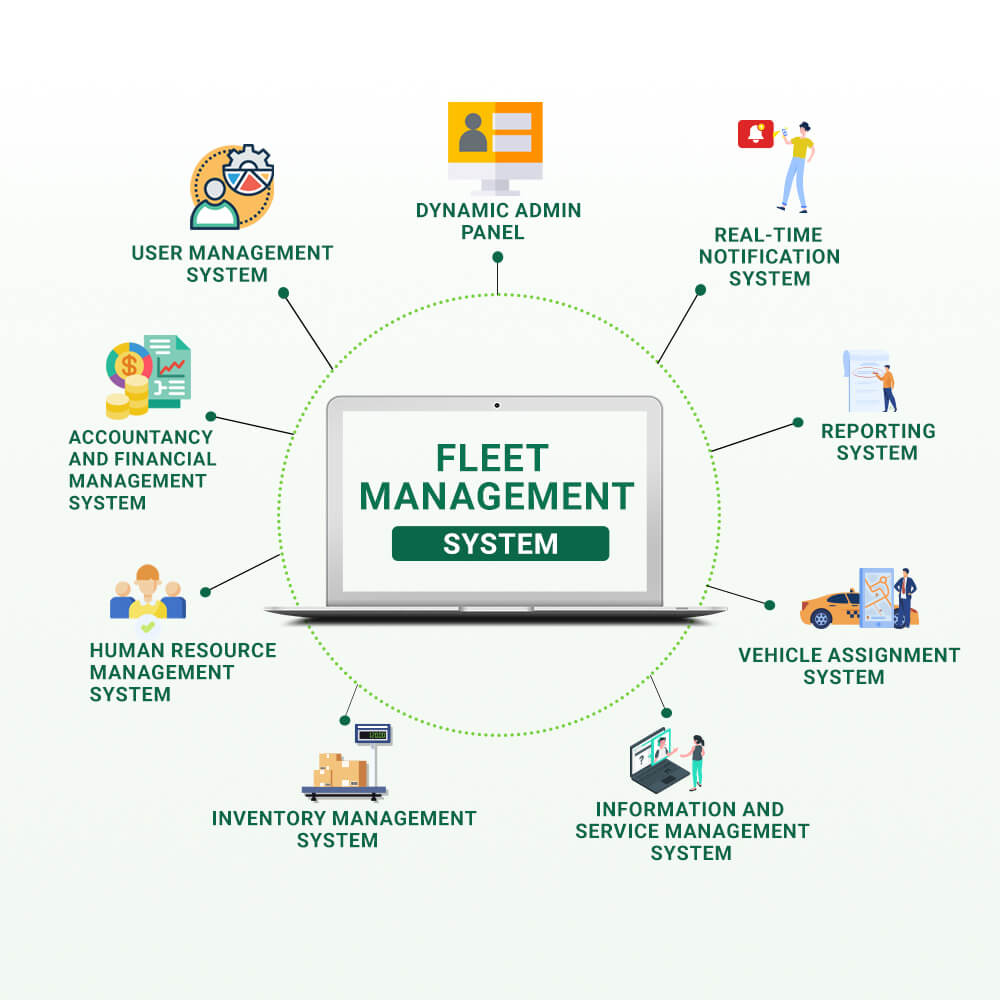Evolve Automation: Leading the Way in Fleet Management Innovation
Evolve Automation: Leading the Way in Fleet Management Innovation
Blog Article
Improve Performance and Performance With Tailored Fleet Monitoring Software Application
In the world of contemporary service procedures, the value of maximizing fleet management processes can not be overemphasized. Customized fleet administration software application uses a detailed option to simplify various facets of fleet procedures, eventually causing improved efficiency and productivity. Envision a circumstance where every automobile in your fleet operates at its peak performance, courses are diligently prepared to reduce fuel consumption and time wastage, and upkeep requirements are proactively attended to before they come to be pricey interruptions. The benefits of employing tailored fleet monitoring software application go beyond just logistical renovations; they can considerably impact the bottom line of your business.
Personalized Fleet Monitoring Solutions
Customized fleet tracking remedies play a crucial duty in enhancing functional performance and maximizing resources for companies with diverse fleet management demands - fleet management tools. These customized solutions offer companies with the capability to keep an eye on and manage their fleets in real-time, enabling them to make informed choices swiftly.
Additionally, customized fleet monitoring options provide advanced attributes such as geo-fencing, anticipating maintenance signals, and efficiency analytics, which empower businesses to enhance operations and improve consumer service. The capacity to track possessions accurately and successfully makes sure that companies can optimize their fleet use, bring about cost financial savings and enhanced profitability. In today's competitive business landscape, having a customized fleet tracking remedy is necessary for organizations seeking to stay in advance of the curve and drive success in their fleet administration procedures.
Real-Time Data Analytics
Real-time information analytics in fleet administration systems give important insights into operational performance and performance metrics, allowing businesses to make educated choices swiftly based upon real-time details. By leveraging advanced innovations, fleet supervisors can access real-time data on car area, fuel usage, chauffeur actions, and upkeep schedules. This immediate accessibility to critical details permits positive decision-making, such as maximizing routes to decrease fuel expenses, recognizing and addressing driver safety issues immediately, and organizing preventative upkeep to minimize downtime.
In addition, real-time data analytics empower services to keep an eye on essential performance indications (KPIs) continually and change strategies as needed to improve total fleet performance. Ultimately, real-time information analytics play a vital role in aiding services stay competitive in the swiftly progressing landscape of fleet management.
Automated Upkeep Scheduling

Implementing automated upkeep organizing in fleet administration systems enhances functional effectiveness and decreases downtime by proactively managing lorry maintenance tasks. By making use of fleet monitoring software application with automated maintenance organizing capacities, business can improve their upkeep processes. These systems can automatically track automobile usage and sharp maintenance groups when service schedules based on predefined standards such as mileage, engine hours, or time periods. Arranged upkeep tasks can be assigned, tracked, and took care of within the software application, ensuring that automobiles receive prompt service to avoid break downs and prolong their functional life.
Automated upkeep scheduling likewise aids in optimizing fleet performance by making sure that automobiles remain in optimal condition. By sticking to an aggressive maintenance schedule, business can decrease unforeseen repairs, decrease expensive downtime, and expand the life-span of their vehicles. Additionally, automated maintenance organizing allows for far better source preparation and allowance, as upkeep jobs can be successfully scheduled during non-operational hours to decrease disruptions to everyday procedures. In general, automated maintenance organizing is a beneficial feature in fleet management software that can substantially improve functional performance and productivity.
Motorist Performance Monitoring
Reliable surveillance of vehicle driver performance is important in fleet administration to ensure safety, performance, and compliance with regulations. By implementing vehicle driver efficiency checking via fleet administration software, firms can track different metrics such as speeding, severe stopping, velocity patterns, idling time, and adherence site here to designated paths. These insights enable fleet managers to recognize high-performing chauffeurs that can function as role versions for others, along with identify locations where extra training or coaching might be necessary to boost overall efficiency.
Chauffeur performance surveillance also plays a substantial function in boosting fuel performance and decreasing upkeep prices. By assessing driver habits, fleet supervisors can identify motorists who are continually utilizing fuel-efficient driving techniques and motivate others to take on similar methods. In addition, keeping an eye on driver performance can help in determining potential safety dangers and high-risk behaviors prior to they bring about accidents, eventually decreasing the danger of pricey repair work, insurance policy claims, and downtime. In general, motorist efficiency monitoring is an important tool for maximizing fleet procedures and guaranteeing the success of the entire fleet administration approach.
Enhanced Route Optimization
Optimizing routes for fleet automobiles is a vital approach in boosting functional effectiveness and cost-effectiveness in fleet management. Enhanced course optimization entails making use of advanced fleet management software application to examine numerous aspects such as web traffic patterns, road conditions, and distribution timetables to prepare the most efficient courses for motorists. By integrating real-time data and anticipating analytics, fleet supervisors can make educated decisions that simplify operations and reduce unneeded mileage, resulting in substantial expense savings.
Via improved course optimization, organizations can accomplish improved on-time shipment rates, lowered fuel consumption, and minimized damage on cars. fleet management software. In addition, enhanced routes cause enhanced consumer satisfaction as shipments are made without delay and effectively. By leveraging technology to enhance routes, fleet supervisors can react rapidly you can check here to unforeseen changes, such as web traffic blockage or last-minute shipment demands, guaranteeing adaptability and adaptability in operations

Final Thought
In conclusion, customized fleet management software program supplies tailored tracking services, real-time information analytics, automated maintenance organizing, driver efficiency monitoring, and improved course optimization. These functions can significantly boost efficiency and efficiency for more tips here companies with fleets of cars. By making use of such software, organizations can streamline their operations, lower expenses, boost driver security, and inevitably optimize their overall performance.
Report this page